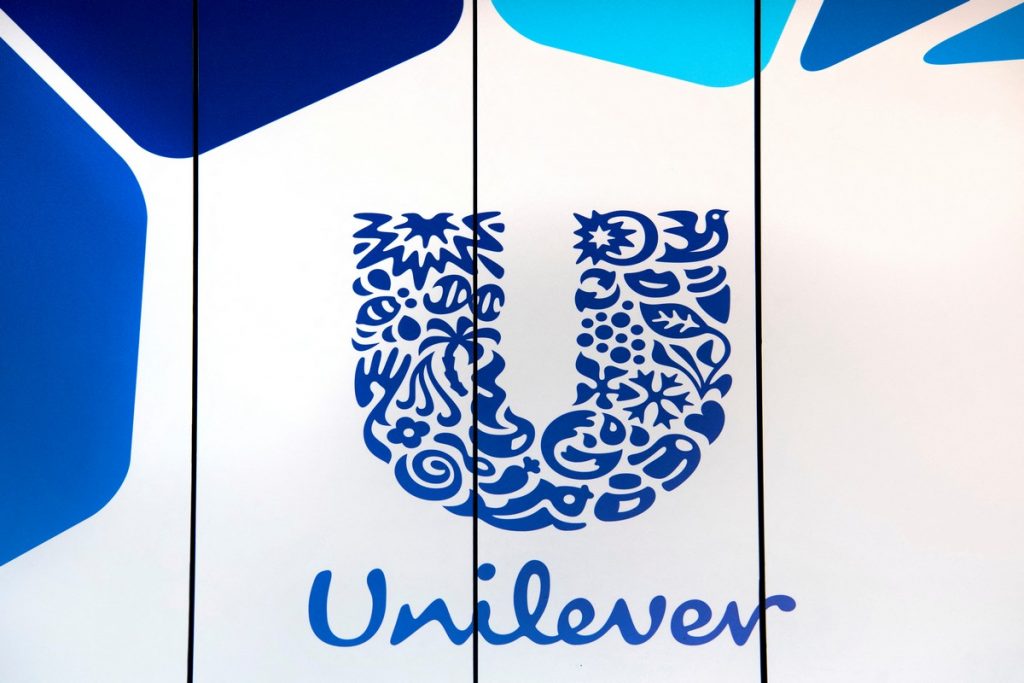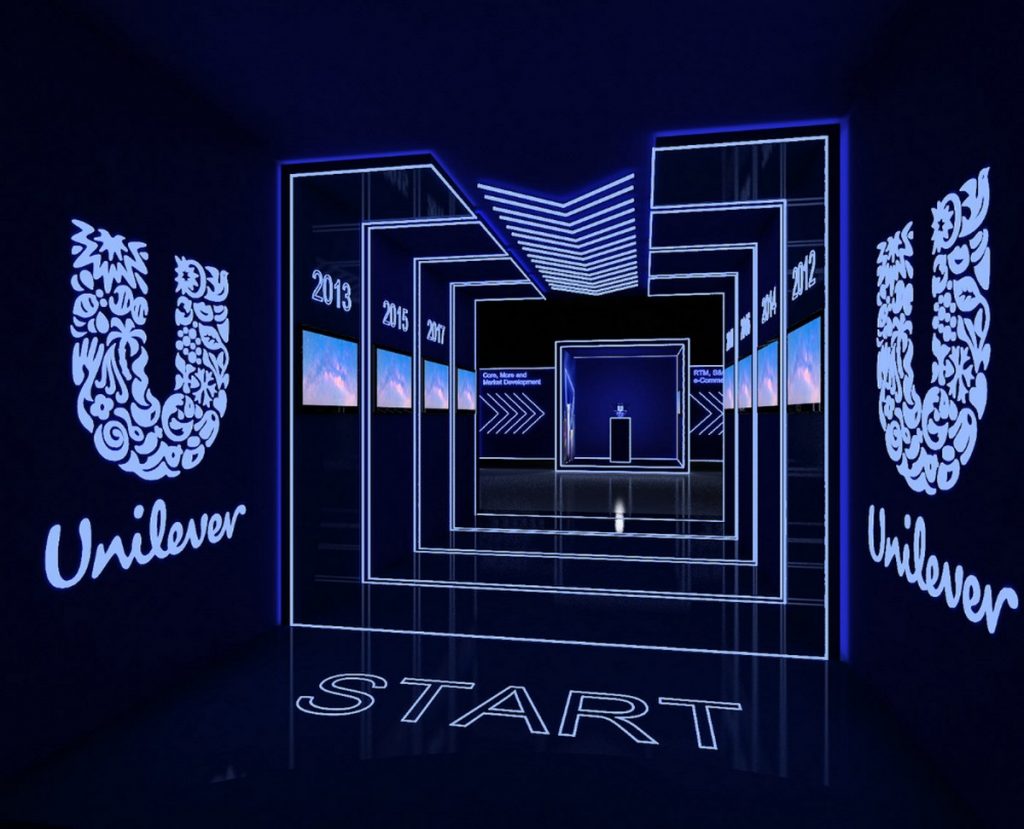Unilever is one of the largest consumer goods companies in the world. The company operates in over 190 countries across the globe. Approximately 3.4 billion people uses its products every day. Unilever has more than 400 brands, which are segregated into five business groups, namely, Beauty & Wellbeing, Personal Care, Home Care, Nutrition, and Ice Cream. The company has over 280 manufacturing facilities across the world. It is formed in the year 1929 and is headquartered in London, England, the UK.
Unilever’s product portfolio includes food, baby food, condiments, soft drink, bottled water, ice cream, cleaning agents, instant coffee, energy drink, pet food, toothpaste, tea, pharmaceutical and consumer healthcare products, breakfast cereals, beauty products, and personal care.
Here are some of Unilever’s statistics:
- Founded on – 1929
- Headquarters – London, England
- Country – United Kingdom
- Industry – Consumer Goods
- CEO – Hein Schumacher
- Number of Employees – 127,000
- Revenues – €60,073 million in 2022
- Operating Profit – €10,755 million in 2022
Unilever SWOT analysis given below highlights its strengths and weaknesses, over which Unilever has full control; whereas opportunities and threat are existing or emerging trends over which the company has no control.
Table of Contents
Unilever Strengths
1. Strong Brand Portfolio
Unilever is one of the largest consumer goods companies operating around 400 brands. 14 of its brands feature in the top 50 most chosen FMCG brands globally. Some of the company’s leading brands include Lux, Dove, Rexona, Magnum, Knorr, Sunlight, Sunsilk, Axe, Omo, Comfort, and many others. The brand is valued at $3.97 billion in 2021 according to Statista.
The company enjoys a strong brand image that is widely recognized and trusted by customers. Strong brand portfolio is the biggest strength of Unilever and helps to increase its sales and support the company’s growth. It also gives the company a competitive edge over other players in the market.
2. Geographically Diversified Operations
Unilever has a strong global presence with operations in more than 190 countries worldwide. The global presence helps the brand to reduce exposure to economic and political risks in any one market.
Its products are used by 3.4 billion people every day. During the fiscal year 2022, the company’s Asia Pacific and Africa region accounted for 45.8% of its total revenues, followed by The Americas (34.8%) and Europe (19.4%). Diversified global operations helps the brand to reach a wide customer base, as well as tap into new markets and revenue streams.
3. Strong Financial Performance
Unilever has delivered strong financial performance with consistent revenue growth and profitability. The company reported revenues of €60,073 million for the fiscal year 2022 compared to €52,444 million for the FY2021. Unilever registered an increase of 14.5% in fiscal 2022 over 2021. As a result, its operating profit also increased from €8,702 million in 2021 to €10,755 million in 2022.
The increase in revenue and improvement in operational performance increase investors’ confidence and provides positive outlook for the future. Such growth in operating income resulted in improvement in the company’s net income. For the FY2022, the company’s net income increased to €8,269 million from €6,621 million in FY2021, reflecting an increase of 24.9% YoY.
4. Product Diversity
Unilever has more than 400 brands, which are segregated into five business groups, namely, Beauty & Wellbeing, Personal Care, Home Care, Nutrition, and Ice Cream. Its Beauty & Well Being product category accounted for 20.4% of its revenues, followed by Personal Care (22.7%), Home Care (20.6%), Nutrition (23.2%), and Ice Cream (13.1%).
Unilever’s product portfolio includes food, baby food, condiments, soft drink, bottled water, ice cream, cleaning agents, instant coffee, energy drink, pet food, toothpaste, tea, pharmaceutical and consumer healthcare products, breakfast cereals, beauty products, and personal care. This diversification helps the company reduce risk and exploit opportunities in different markets.
Unilever Weaknesses
1. Dependence on Retailers
The brand’s performance and reputation depends heavily on the retailer’s performance. Unilever depends on a network of retailers to sell its products across the world. Also, big retail stores have started launching their own brands, increasing the competition for Unilever.
2. Increasing Prices
Recently, Unilever announced that its products prices will be increased in the coming months. The major reason attributable is the price increase of commodities like crude, palm, and soya bean oil, as well as higher transport and packaging costs. Unilever’s CEO Alan Jope mentions that the company is incurring increase in material costs. As a result, the brand expects to increase in prices of products in the future.
Unilever Opportunities
1. Strategic Acquisitions
Entering into strategic agreements provide an opportunity for the company to expand its operations, enhance its supply chain, and access new technologies or capabilities that can improve its business. In May 2022, Unilever announced to acquire a majority stake in Nutrafol, a leading provider of hair wellness products.
Nutrafol and its approach to hair health is the perfect complement to Unilever’s growing portfolio of innovative wellness and supplements brands. Also, in August 2021, the company completed the acquisition of Paula’s Choice, the digital-led skin care brand. Recent acquisitions have helped to position Unilever more effectively in faster-growing parts of the market, including in Prestige Beauty and Health & Wellbeing.
2. Cloud-only Enterprise
In April 2023, Accenture, Microsoft and Unilever have completed one of the largest and most complex cloud migrations in the consumer goods market. This helped the company to become a cloud-only enterprise. With Azure as its main cloud platform, Unilever will be able to speed up product launches, improve customer service and increase operational efficiency.
3. Innovation in sustainable products
Unilever can innovate and produce more sustainable products as consumers become more environmentally conscious. The company can launch a variety of products in this field and make a profit by catering to this growing need of the people.
Unilever Threats
1. Highly Competitive Market
The brand operates in a highly competitive consumer goods market. Its major competitors include Nestle, Procter & Gamble, Johnson & Johnson, and many others. Many of its competitors are undertaking acquisitions and product improvements to expand their product offerings and attain market domination in their respective areas.
The launch of new brands and new products by its competitors are decreasing the market share for existing brands. Thus, it may also impact the market share of Unilever.
2. Impact of the Pandemic
The coronavirus (COVID-19) is not only a global public health emergency but also a cause of a number of regional and global economic disruption. The COVID-19 pandemic has had an adverse impact on its business and operations. Thus the year 2022 was marked by the impacts of the Covid-19 health crisis in a number of geographic areas in which Unilever operates, particularly China.
3. Changing Consumer Preference
A shift in consumer preferences toward healthier or more sustainable products could impact the demand for some of its products. Also, if there are changes in consumer trends, such as a shift towards online or mobile ordering, it could impact the way Unilever does business and require the company to adapt its operations in order to remain competitive.
4. Government Regulations
Unilever, being a global company, is subject to the government laws and regulations of the country in which it operates. The company has to comply with different regulations governing product standards, packaging and labelling requirements, import restrictions, tax requirements and tariff regulations.
Non-compliance with applicable laws and regulations or failure to maintain, renew or obtain necessary permits and licenses could affect the results of its operations and financial performance.
5. Supply Chain Disruptions
Unilever poses a major threat when there are interruptions in its supply chain or sourcing difficulties, since these might have an effect on the price and availability of the raw materials and other inputs utilized in the production of its products.
Disruptions in the supply chain, such as delays in transportation or any natural calamities, can impact the availability of some materials, which can, in turn, impact the company’s production and profitability.
Liked this post? Check out the complete series on SWOT

